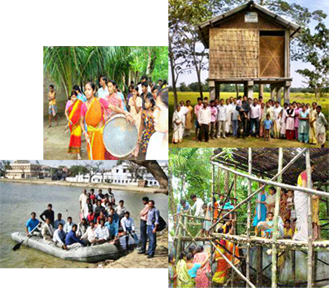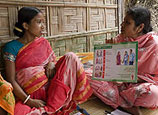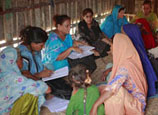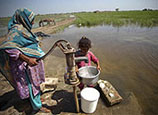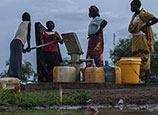Making women and children our priority
Tens of millions of people are affected annually in India by floods, of which women and children are the worst hit. Making them as our priority, UNICEF works with Government to prepare at-risk communities take effective measures to minimise damage and be prepared against disasters.
Community-based Disaster Risk Reduction
The Community-based Disaster Risk Reduction (CBDRR) programme ensures that the poorest, most vulnerable and marginalised communities understand the simple yet lifesaving actions required to protect lives assets and lifeline services in case of natural disasters.
These measures include:
Education for children
Re-establishing education after an emergency not only meets a fundamental right of children, but also normalises the environment for them. UNICEF sets up Alternative Learning Spaces for children during floods with special emphasis on life saving skills, health and nutrition.
Special Care for pregnant mothers
Maternity huts are set up to ensure that pregnant mothers get optimum level of obstetric care services all the time (no disruption during and post disaster situation)
Special focus is also placed on integrated nutrition, immunization and health services regularly to expecting and lactating mothers and under 5 Children.
Ensure survival of at-risk communities for at least the first seven days of a disaster without external support. Use local action and local resources like family survival kits, panchayat plans, funds and schemes etc.
Training on life saving measures like swimming, boat making, machan making, creating raised platforms and shelters for people
Disaster proofing essential services such as water and sanitation with raised latrines and hand pumps
Raising awareness around hazards and risks
Hazard monitoring, early warning and dissemination system
Moving animal and assets to safer locations
Skill development on search & rescue, first aid, shelter management and more



